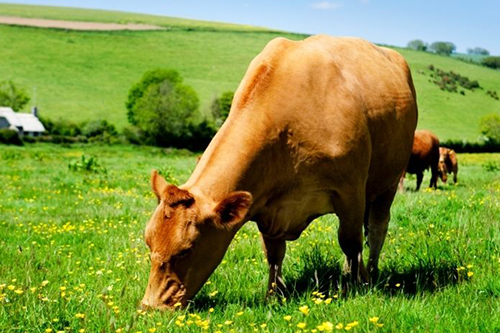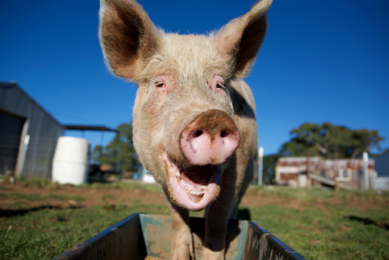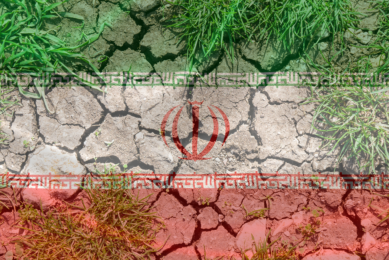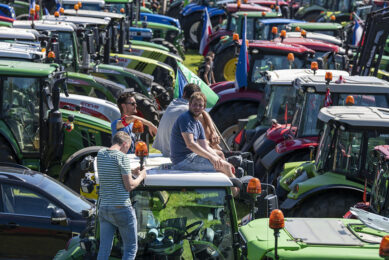Netherlands: Relaxation in nitrogen rules likely

This week contained a next chapter in the ongoing saga related to nitrogen emissions in the Netherlands, which could potentially have consequences for its swine industry. A few days ago, news trickled through that the new government is planning to scrap earlier policies aimed at protecting the Netherlands’ natural areas.
Since 2019, environmental legislation has kept the Netherlands in a state of paralysis. European laws stipulate that the Netherlands is bound to protect its natural areas. In 2019, by appeal to the Council of State, existing legislation regarding this protection, however, were considered null and void, which particularly meant that existing policies regarding nitrogen emissions were considered insufficient. New policies were required. That meant that the Netherlands’ government had to take action.
Consequences for daily life
Immediate consequences included the introduction of day-time speed limits of 100 km/h on motorways and construction permits were harder to get by, as construction work also can lead to nitrogen emissions. The previous government also looked to the livestock industry – especially those located close to natural reserves – and prepared for a massive buy-out of pig, poultry and dairy farms. Left-wing political parties even called for a “halving” of the livestock industry. Not surprisingly, that again led to strong protests from the rural population.

National rural area plan
One of the tools the previous government had introduced to achieve its goals was the “National Rural Area Plan”, in Dutch abbreviated to NPLG. Its underlying idea would be that each province individually would be allowed to create tailor-made plans to incorporate all environmental targets. Apart from nitrogen emissions, those also include water quality and manure management, to name a few. There was a fund available of over €24 billion to make this all happen.
Scrapping the policy
In case the environmental quality would thus have improved as a consequence of the NPLG, all kinds of permits, for farming but also for construction of houses and roads, would have been issued again. Even though various provinces had proceeded relatively far with designing policies based on the NPLG – it is this policy the new government is likely to scrap.
Nitrogen emissions and general elections
The change of heart by the Netherlands’ authorities came about after general elections in November 2023 sent home the existing government, with the ambitious nitrogen dossier likely having played a role in the elections’ outcome. A substantially more right-wing government took office this spring, and it was expected that changes would come to adjust the policies related to nature protection and nitrogen emissions. An ominous sign was that a large chunk of the €24 billion were already cancelled as soon as the new government took office.
EU regulations to be addressed
This week’s developments don’t mean that the European requirements related to nature, climate, nitrogen or water quality are all off the table. It is as yet unclear how the new government aims to address those matters. It is expected that Femke Wiersma, the new minister of agriculture, will present plans later this year. In a debate with parliament on Wednesday, September 4, she hinted to the introduction of different mathematical models to predict nitrogen output, as well as better management systems on farms which would help reduce nitrogen pressure. The authorities also hope for the EU to cooperatively think about exceptions to existing rules – even though some think that will be in vain.
“The only logical thing to do”
Responses to this week’s developments have been predictable. Agricultural organisation LTO said it the decision was “not illogical”, and a spokeswoman for the farmers’ organisation Agractie commented that “it was the only logical thing” the new minister of agriculture could have done. Both emphasise that they are willing to look at the future, as long as the interests of agriculture aren’t overlooked or forgotten.
Left-wing political parties as well as nature organisations have called the cancellation “incomprehensible.” A spokesperson for Natuur & Milieu was quoted by Boerderij to say: “It is a crying shame that the approach that is in place is pushed aside, while the goals remain the same. This yo-yo policy only creates uncertainty for farmers, provinces and nature.”
Many provinces have responded that they had advanced quite far in working with the plans of the previous government – some of them had been working for 2 years with the policy. They are now looking for what alternatives the new government may present or choose to continue on the road that they chose to go, in order to provide “perspective.”











